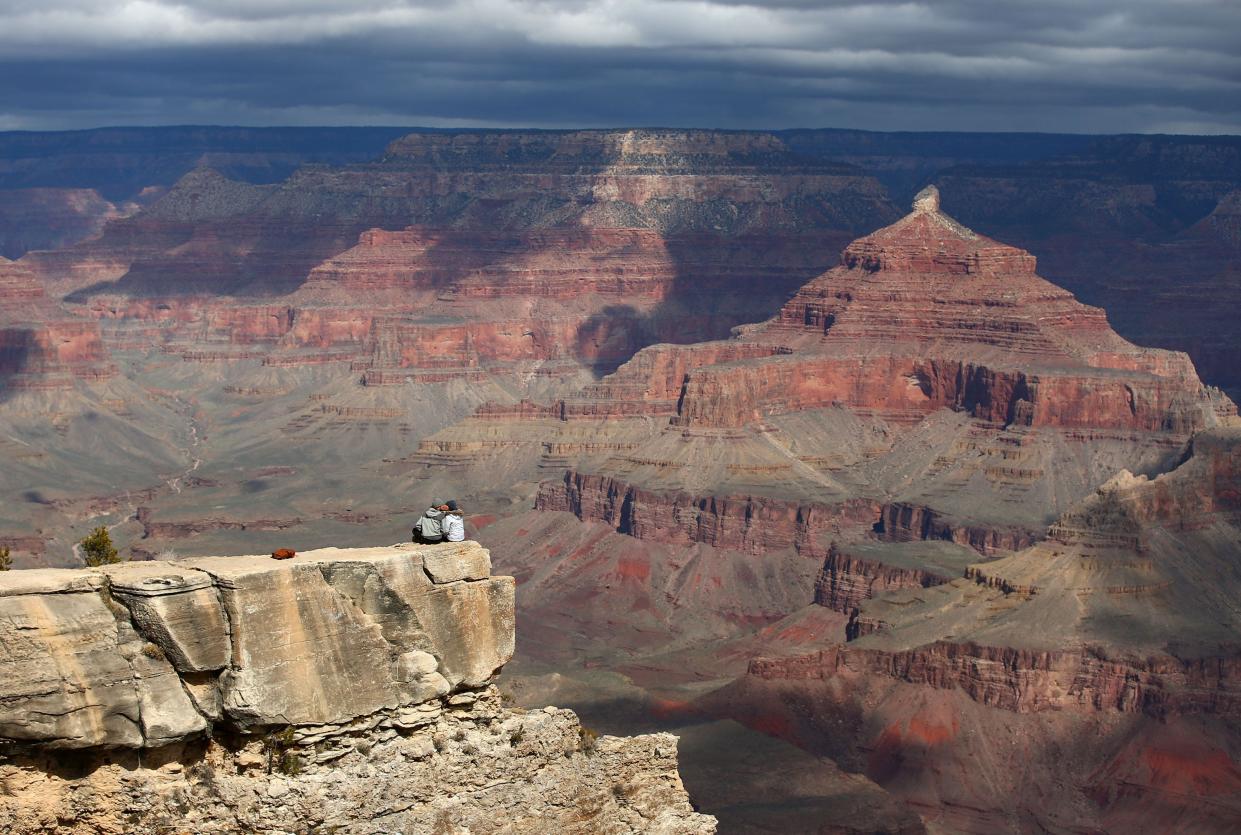Norovirus, 118 cases of gastrointestinal illness reported at Grand Canyon, officials say
More than 100 cases of gastrointestinal illness have been reported at Grand Canyon National Park this month, with some people testing positive for the norovirus, according to park officials.
The gastrointestinal illness cases were found mostly in visitors who had gone on trips in the Colorado River, but some were also reported in people who went on backpack trips within the Grand Canyon's remote backcountry, Joelle Baird, a public affairs specialist at Grand Canyon National Park, told USA TODAY on Friday. In all, 118 cases of gastrointestinal illness have been reported at the Grand Canyon since June 10.
The high numbers of infections this month come after the national park in Arizona reported "increasing reports of gastrointestinal illness among river users and backcountry campers" in May.
According to the May statement from Grand Canyon National Park, the symptoms for the recorded cases were "consistent with norovirus."
Norovirus is a highly contagious virus that can spread through contact with an infected person or by consuming contaminated food and water, according to the Centers for Disease Control and Prevention. Norovirus symptoms include vomiting, diarrhea and stomach pain.
Nation: Tennessee woman dies at Grand Canyon National Park after falling into Colorado River, officials say

According to Baird, public health officials in coordination with the Coconino County Health and Human Services Department and the CDC tested fecal samples for the presence of norovirus on eight infected river trips. Samples from all of the trips tested positive.
Because of the findings, "we can be pretty confident at this point that what has been going around and causing so much gastrointestinal illness in our backcountry users is norovirus," Baird said, adding that they still can't confirm that all 118 cases are norovirus.
The national park did not specify the number of confirmed norovirus cases.
What's everyone talking about? Sign up for our trending newsletter to get the latest news of today
The highest levels of reported cases were reported in mid and late May, Baird said. "Since then, it's kind of plateaued off a little bit," she added, noting that they're still going through the data.
A team including Grand Canyon National Park, the National Park Service's Office of Public Health, the CDC, Arizona Department of Health Services and Coconino County Health and Human Services is working to investigate and address the gastrointestinal illness cases.
"[We're trying] to see if there are any consistencies or connections that can be made through certain backcountry areas," Baird said. "There's a kind of a geographic element to this as well because Grand Canyon National Park is 1.2 million acres – and not all of these cases are being reported from the same area."
Yellowstone: Park managers raised the gates at three entrances for the first time since June 13
Gastrointestinal illness cases have been reported at the Grand Canyon in the past, but the reach of the recent numbers is alarming.
"When norovirus does make its way into the Colorado River and impacts users, it's not uncommon for it to spread rapidly and infect potentially a whole river trip," Baird said. "However, the number of different trips impacted by this is a little more concerning. And that's why we're working [in] coordination with the county as well as the CDC to try to understand this outbreak more fully."
In the park's May alert, the Grand Canyon urged visitors to follow practices to help prevent norovirus transmission – including ensuring their drinking water is filtered and disinfected, washing their hands regularly and avoiding groups if they have felt ill within the past 72 hours.
This article originally appeared on USA TODAY: Grand Canyon reports norovirus, 118 cases of gastrointestinal illness
